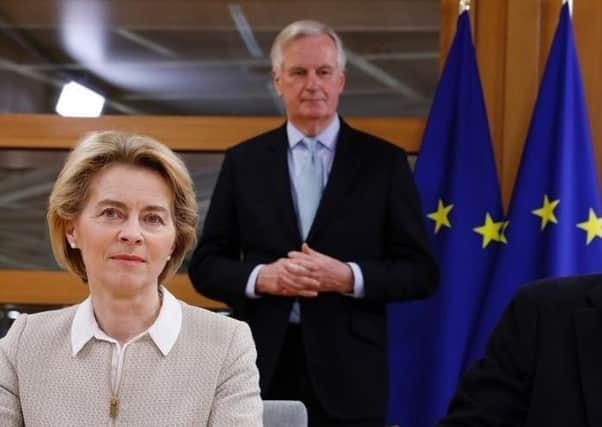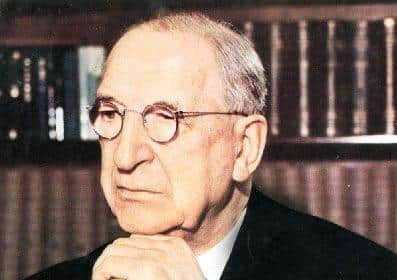Ben Lowry: International agreements should be observed but sometimes they are not kept, as Ireland has shown


‘Very concerned about announcements from the British government on its intentions to breach the Withdrawal Agreement. This would break international law and undermines trust. Pacta sunt servanda = the foundation of prosperous future relations.’
Pacta sunt servanda means, literally, pacts are to be saved (in other words, agreements are to be kept)
Advertisement
Hide AdAdvertisement
Hide AdHer tweet got 22,000 likes. That it met with particular approval in Ireland is no surprise because we have seen four years of the Dublin establishment, and its media and academic cheerleaders, sneering at British arrogance and delusions and incompetence. Ireland, by implication (and in some cases this is stated explicitly), is a rational, internationalist nation, which abides by rules.


The use of ‘pacta sunt servanda’ is telling given that the UK set out its internal market plan in the Stormont deal, as outlined above (in the print edition, or link below online).
And that very phrase, pacta sunt servanda, is used in a 1996 article in the magazine History Ireland, ‘The Boundary Commission Debacle 1925, aftermath & implications’.
Dr Enda Staunton examines the legality of Eamon De Valera’s 1937 constitution, which revoked Ireland’s 1925 acceptance of partition in the treaty after the Boundary Commission.
Advertisement
Hide AdAdvertisement
Hide AdDr Staunton writes that a secret Irish foreign affairs memo in 1969 considered the claim that the 1925 deal did not survive the 1937 constitution and the 1948 Republic of Ireland Act.
Of the memo conclusions, he says: “The basic principal of respect for treaties (pacta sunt sevanda) means they may not be unilaterally terminated. International relations would be very haphazard and unstable if [governments terminated] their international commitments.”
The memo quoted a 1932 Court of International Justice ruling “that a state ‘could not cite its own constitution as evidence but had to reply on international laws and obligations’”. Ireland had “little basis on which to make [its dispute with Britain] it a legal one”.
Interesting that.
• Ben Lowry (@BenLowry2) is News Letter deputy editor
——— ———
A message from the Editor:
Advertisement
Hide AdAdvertisement
Hide AdThank you for reading this story on our website. While I have your attention, I also have an important request to make of you.
With the coronavirus lockdown having a major impact on many of our advertisers — and consequently the revenue we receive — we are more reliant than ever on you taking out a digital subscription.
Subscribe to newsletter.co.uk and enjoy unlimited access to the best Northern Ireland and UK news and information online and on our app. With a digital subscription, you can read more than 5 articles, see fewer ads, enjoy faster load times, and get access to exclusive newsletters and content. Visit https://www.newsletter.co.uk/subscriptions now to sign up.
Our journalism costs money and we rely on advertising, print and digital revenues to help to support them. By supporting us, we are able to support you in providing trusted, fact-checked content for this website.
Alistair Bushe
Editor